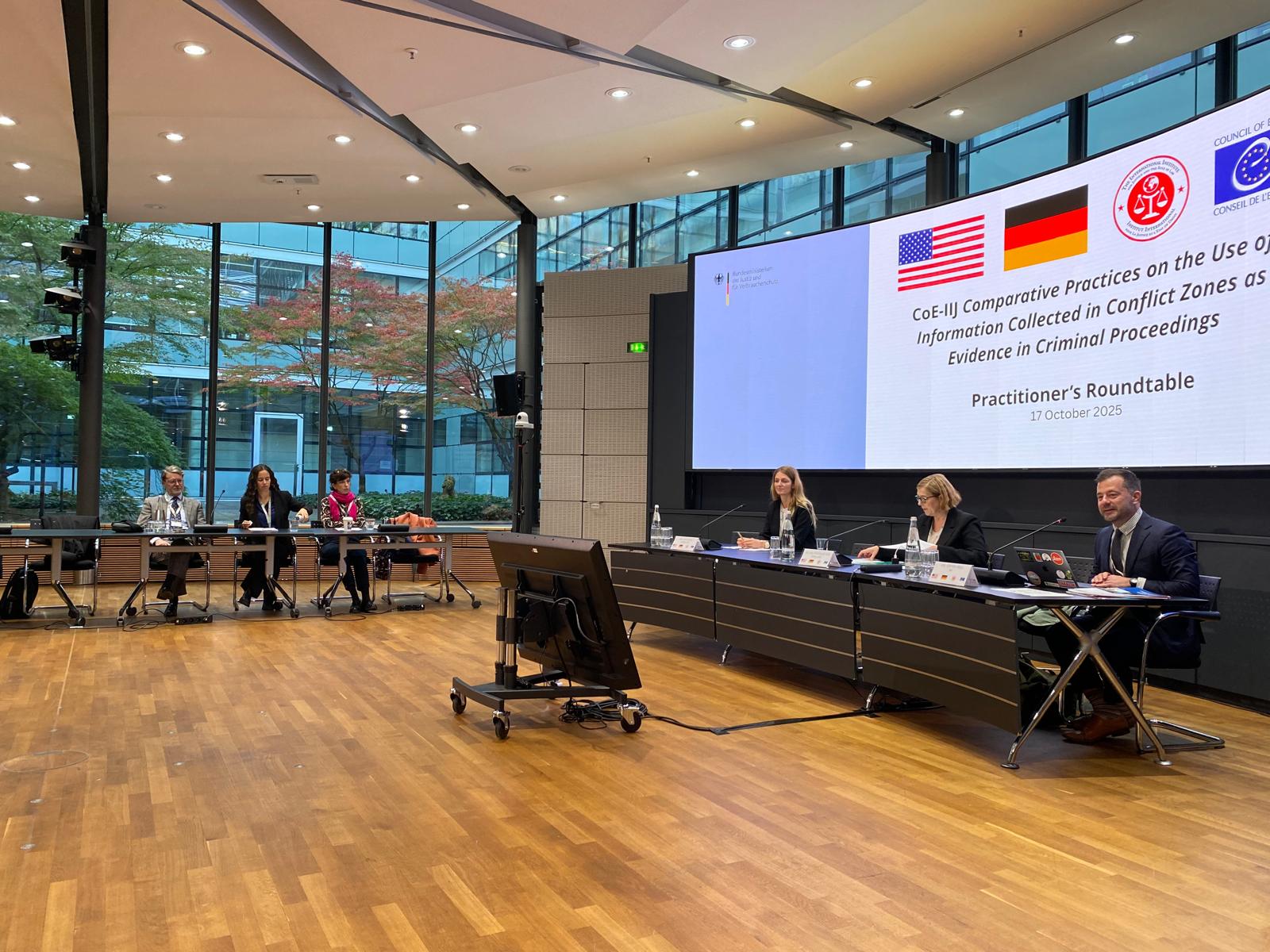
On 16–17 October 2025, in Berlin, the IIJ, in partnership with the Council of Europe Committee on Counterterrorism (CDCT) Secretariat, convened the official public launch event for the Comparative Practices on the Use of Information Collected in Conflict Zones as Evidence in Criminal Proceedings, hosted by Germany’s Federal Ministry of Justice with the generous support of the United States Department of State Bureau of Counterterrorism. The event was followed by a closed Criminal Justice Practitioners’ Roundtable on trends and developments in the use of conflict zone information as evidence.
The Comparative Practices consolidates the experiences of certain States that have developed approaches in identifying, obtaining, and sharing information and materials from conflict zones, and in using it as evidence in criminal proceedings related to terrorist offences. The Launch Event brought together over 50 criminal justice practitioners, policymakers, and leading multilateral representatives to discuss how to apply the concrete guidance contained in this essential new resource.
The event featured keynote remarks by the Honourable Judge John Cronan, United States District Court Judge for the Southern District of New York, who shared valuable insights drawn from his extensive experience with complex terrorism cases. The programme was formally opened by Dr. Bernhard Böhm, Director General and Head of Department for Criminal Law at Germany’s Federal Ministry of Justice, and Ms. Gail Demanuele, Deputy Head of Mission and Senior Counsellor at Malta’s Embassy in Germany, both of whom commended the IIJ’s innovative and impactful programming. Discussions also benefited from the valuable insights of several of the IIJ’s close partners, including NATO, INTERPOL, Eurojust, and the Commission for International Justice and Accountability (CIJA).
The Criminal Justice Practitioner’s Roundtable established a closed and ongoing forum for states to share how they are using conflict zone information to bring perpetrators of terrorism-related and other serious criminal offences to justice, to ensure these Comparative Practices remain updated, relevant, and impactful. This select group of highly experienced practitioners who participated in the Roundtable exchanged recent lessons learned that can enable them to surmount emerging challenges in terrorism investigations and prosecutions. In sum, these impactful programmes equipped participants with practical techniques which will help bring more terrorists to justice, disrupt more plots, and keep borders more secure and societies safer worldwide. The IIJ looks forward to continuing to promote the sharing and use of battlefield evidence going forward, including through workshops for practitioners in the Middle East and North Africa as well as in the Asia-Pacific
